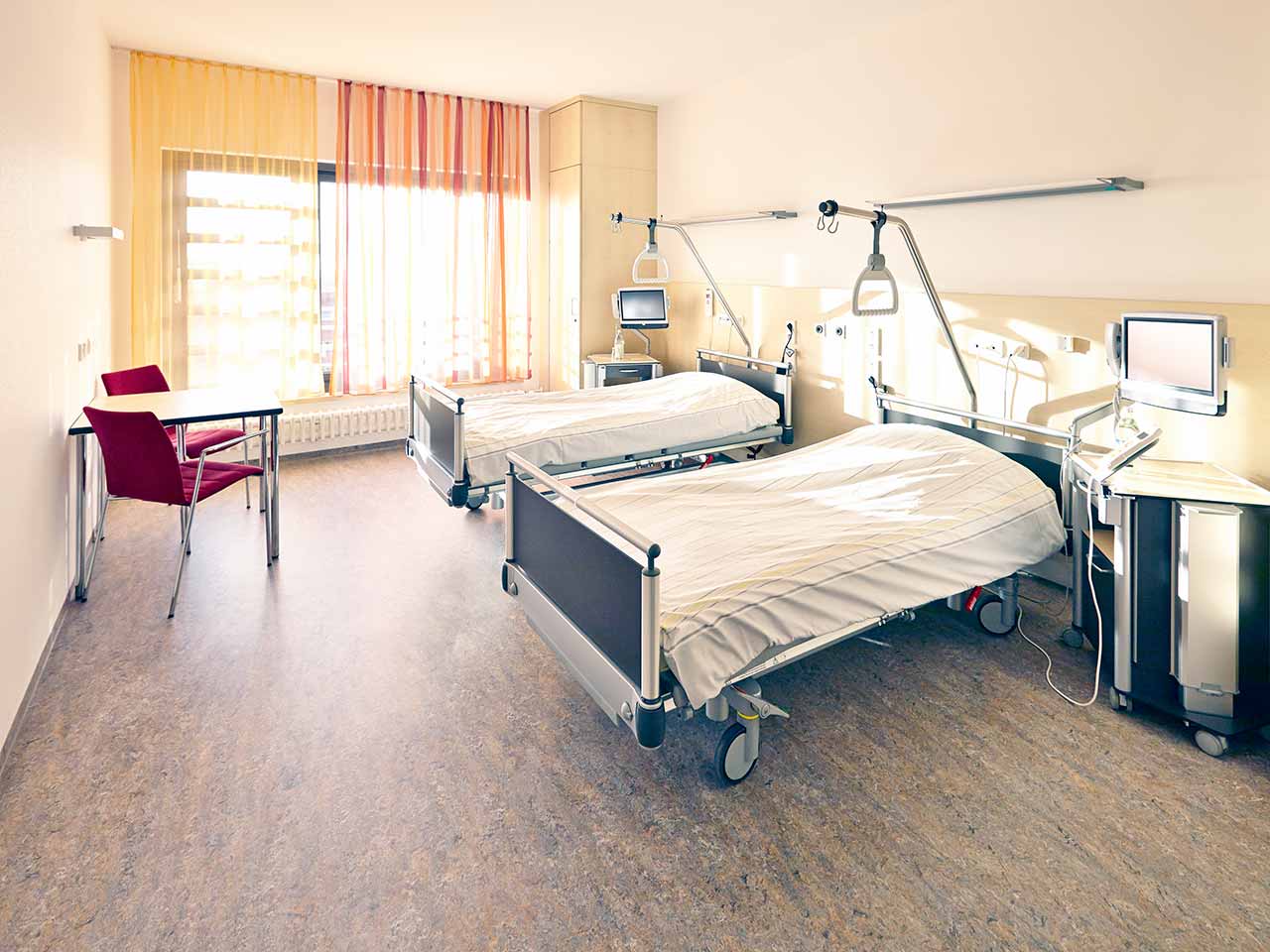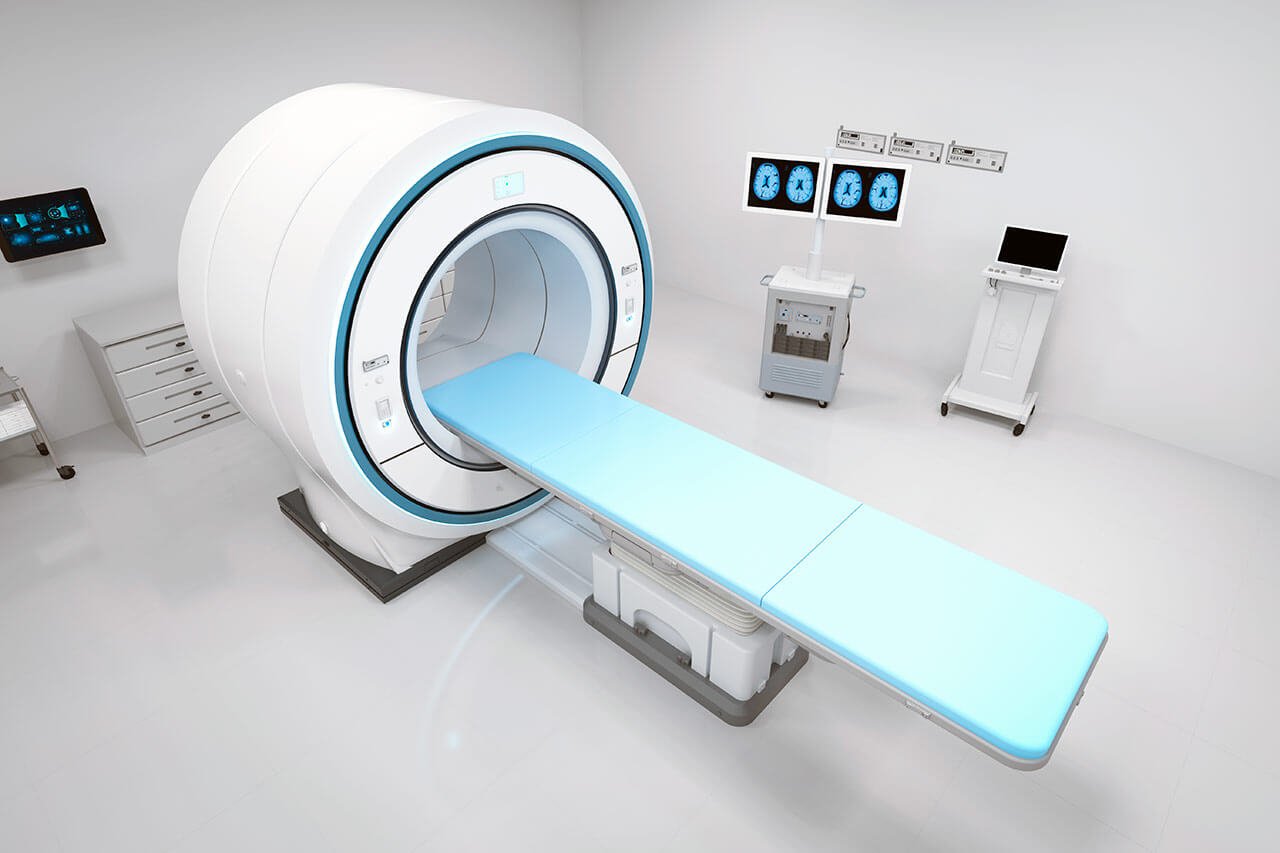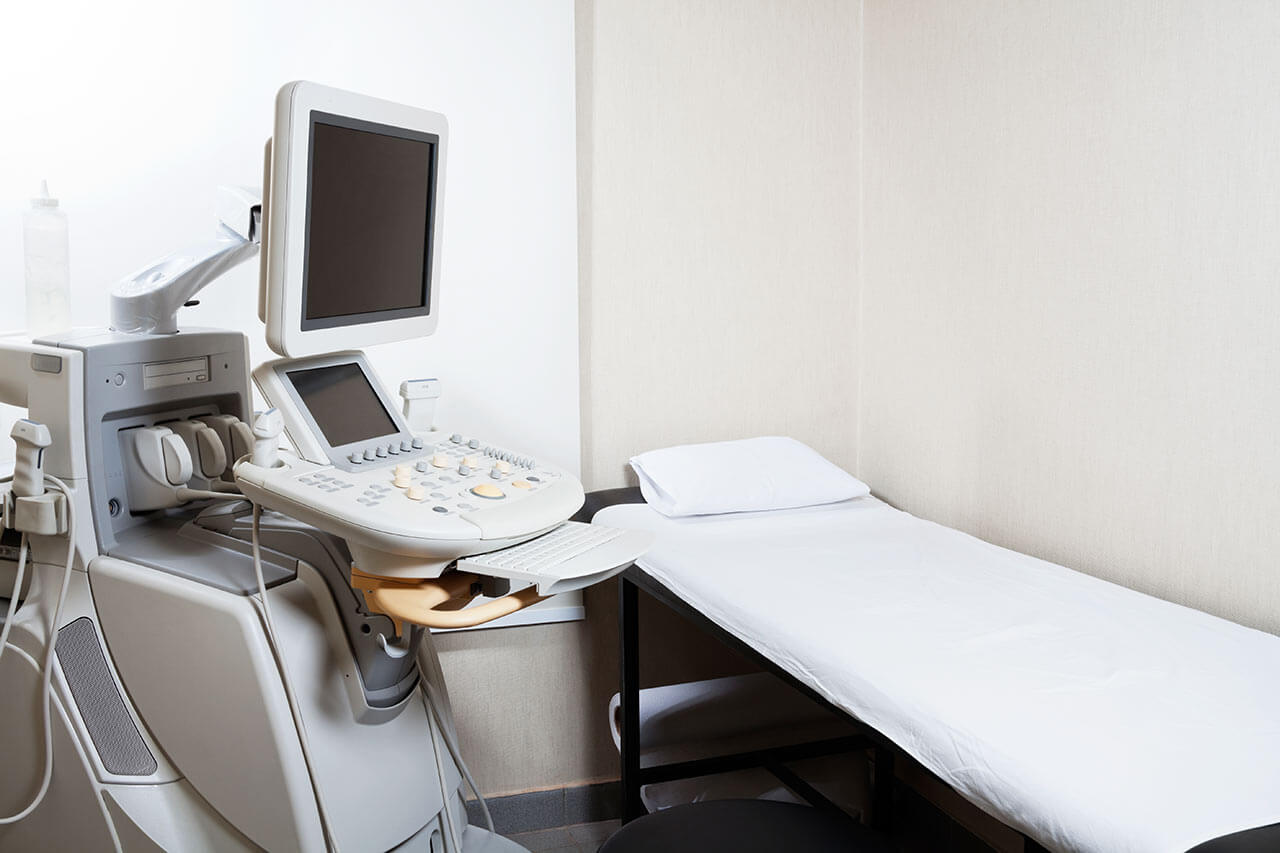
About the Department of Pediatric Endocrinology at University Hospital Ulm
The Department of Pediatric Endocrinology at the University Hospital Ulm provides the full range of medical services for young patients with endocrine disorders. The department's team of doctors carries out comprehensive diagnostics and effective treatment for diabetes mellitus, all types of obesity, growth disorders, thyroid pathologies, etc. The department also offers competent medical care for puberty disorders in children. The health facility has an in-house Biochemical and Molecular Genetic Laboratory where hormone tests and other tests are performed. The department is certified according to the standards of the German Society for Pediatric Endocrinology and Diabetology (DGKED) and has been awarded by the German Association for the Study of Obesity (DAG) with a quality certificate for its outstanding achievements in this field. In addition, the department is part of the European Reference Network on Rare Endocrine Conditions (Endo-ERN). In most cases, young patients receive medical care on an outpatient basis without a mandatory hospital stay. The necessary technical resources and professional medical staff allow the department to provide patients with effective treatment. Special attention is paid to the comfort of young patients, and therefore the medical facility has play areas for children.
The Head Physician of the department is Prof. Dr. med. Martin Wabitsch. The doctor studied at the universities in Berlin, Ulm, Nice, and Baltimore. He has a successful clinical practice and is engaged in research activities. The specialist received many prestigious awards, including research prizes from the German Association for the Study of Obesity (DAG), the European Society for Pediatric Endocrinology (ESPE), and the German Diabetes Society (DDG).
The key focus of the department's clinical activities is the treatment of diabetes mellitus in children. Most commonly, young patients are diagnosed with type 1 diabetes mellitus, which is a chronic disease characterized by increased blood glucose levels (hyperglycemia) due to insulin deficiency resulting from autoimmune destruction of pancreatic beta cells. The main manifestations of type 1 diabetes mellitus in a child are frequent urination and thirst, weight loss, fatigue, weakness, visual impairment, nausea, and vomiting. To make a diagnosis, the department's doctors carry out blood tests for glucose and glycosylated hemoglobin, as well as antibody tests for insulin, pancreatic beta cells, glutamate decarboxylase, and zinc transporter 8. The child is also examined by cardiologists, nephrologists, and ophthalmologists because the pathology is associated with the risk of the development of heart and kidney conditions and may provoke visual impairment. The most effective treatment method for type 1 diabetes mellitus in children is insulin therapy. The department's specialists prefer pump insulin therapy. The required insulin dose is continuously injected under the skin of the child using a special electronic device (pump) based on individual settings prescribed by the physician. The insulin pump is compact and, therefore, inconspicuous under clothing. It is an excellent alternative to daily classical insulin injections. Dietary control is also an integral part of the therapeutic process. It is necessary to exclude high carbohydrate foods from the diet as much as possible. The specialists also recommend the child to go in for sports in order to control weight and maintain normal tissue sensitivity to insulin.
The department's doctors have exceptional experience in the treatment of young patients with obesity. In most cases, excess body weight is caused by improper nutrition and a sedentary lifestyle, but there are also situations where obesity results from hormonal imbalances or genetic mutations. Before starting treatment, the department's endocrinologists determine the cause of obesity. Diet therapy and physical activity come to the fore if the child does not have hormonal imbalances or genetic mutations. Psychologists are also involved in the therapeutic process. They carry out behavioral therapy and work on the psychological aspects of obesity. In collaboration with highly specialized experts, the department's doctors also treat secondary diseases caused by obesity in children. These include arterial hypertension, lipid disorders (for example, hypertriglyceridemia), diabetes mellitus, puberty disorders, digestive diseases, and musculoskeletal pathologies. The department is certified by the German Association for the Study of Obesity (DAG) and the Working Group of Obesity in Childhood and Adolescence (AGA) as a specialized medical facility for the treatment of obesity in children. The department has been treating young patients with obesity for more than 25 years, so the specialists have highly effective treatment regimens that are adapted to the individual needs of the child. In addition, the department is one of the few hospitals in Europe that successfully performs replacement therapy using a recombinant analog of human leptin (metreleptin) for treating obesity and lipodystrophies caused by leptin gene mutations.
The department's therapeutic options are complemented by the treatment of lipodystrophy (adipose degeneration). This rare condition causes complete or partial loss of subcutaneous adipose tissue, as well as its improper distribution. There are various types of lipodystrophy, including genetic and acquired ones, as well as generalized or partial forms. The generalized form affects the entire body of the child, while the partial form only affects certain areas. Due to the rarity of the pathology and its diverse symptoms, it is often diagnosed in its advanced stages. During the diagnosis, a phenotype blood test and genetic tests play a key role. The department's doctors also regularly carry out additional diagnostic examinations to detect secondary pathologies (hormonal imbalances, metabolic disorders, and diabetes mellitus are the most common). The main treatment method for young patients with lipodystrophy is diet therapy. If laboratory tests reveal low leptin levels in the blood, the specialists conduct replacement therapy with metreleptin, a recombinant analog of human leptin.
The department's range of medical services includes the following:
- Diagnostics and treatment of diabetes mellitus
- Diagnostics and treatment of obesity
- Diagnostics and treatment of lipodystrophy
- Diagnostics and treatment of thyroid diseases
- Diagnostics and treatment of parathyroid diseases
- Diagnostics and treatment of adrenal diseases
- Diagnostics and treatment of gonadal (sex gland) disorders
- Diagnostics and treatment of growth disorders: dwarfism and gigantism
- Diagnostics and treatment of weight disorders caused by hormonal pathologies
- Diagnostics and treatment of puberty disorders
- Diagnostics and treatment of bone metabolism disorders
- Diagnostics and treatment of endocrine diseases after cancer in childhood and adolescence
- Diagnostics and treatment of hirsutism
- Diagnostics and treatment of disorders of water and electrolyte metabolism
- Diagnostics and treatment of disorders of calcium and phosphorus metabolism
- Diagnostics and treatment of diseases of the testicles and male reproductive system
- Diagnostics and treatment of diseases of the ovaries, breast, and female reproductive system
- Diagnostics and treatment of endocrine disorders in syndromal and complex diseases
- Diagnostics and treatment of polyendocrinopathy
- Diagnostics and treatment of other endocrine diseases in children and adolescents
Curriculum vitae
Higher Education and Professional Career
- 1982 - 1989 Medical studies, Universities of Berlin, Ulm, Nice, and Baltimore (Johns Hopkins University).
- 1990 - 1996 Professional training in Pediatrics.
- 1991 Thesis defense in Experimental Medicine, summa cum laude.
- 1993 Research Fellow in the European Society for Pediatric Endocrinology (ESPE) program, Hagedorn Research Institute, Gentofte, Denmark.
- 1997 Intern and Research Fellow, Department of Pediatric Endocrinology, University Hospital Ulm.
- 1997 Assistant Professor for Pediatrics, University of Ulm.
- 2003 Board certification in Diabetology, German Diabetes Association (DDG).
- 2004 Associate Professor for Pediatrics.
- Since 2004 Head Physician, Department of Pediatric Endocrinology, University Hospital Ulm.
- 2004 C3 Professor for Pediatric Dietetics, Technical University of Munich.
Academic Positions
- 2007 - 2012 Spokesperson, then President of the German Society for Pediatric Endocrinology and Diabetology (APE/DGKED e.V.).
- Since 2011 Chairman of the Section for the Research of Cardiometabolic Disorders, Boehringer Ingelheim Ulm University BioCentre.
- 2012 - 2015 President of the German Association for the Study of Obesity.
- 2012 - 2019 Coordinator, "Young people with morbid obesity" consortium of the Federal Ministry of Education and Research (BMBF).
- 2015 - 2018 Board Member of the European Society for Pediatric Endocrinology (ESPE) Science School.
- Since 2017 Chairman of the Center for Rare Endocrine Diseases (ZSEE), University Hospital Ulm.
Clinical Interests
- Growth and weight regulation (energy homeostasis) in children and adolescents.
- Genetics, epigenetics, and pathophysiology of endocrine diseases.
- Insulin resistance and metabolic syndrome.
- New approaches to the treatment of type 1 diabetes mellitus in children and adolescents.
- Innovative individualized treatment methods for obesity and diabetes mellitus.
Research Interests
- Regulation of proliferation and differentiation of human mesenchymal stem cells (hMADS).
- Metabolism and endocrine function of human adipocytes.
- Energy metabolism of human adipocytes (WAT and BAT).
- Functional characterization of pathological types of human leptin.
Prizes, Awards, and Honors
- 1993 Research Fellowship of the European Society for Pediatric Endocrinology (ESPE).
- 1995 Research Prize from the German Association for the Study of Obesity (DAG).
- 1997 Research Prize from the European Association for the Study of Obesity (EASO).
- 1998 Research Prize from the European Society for Pediatric Endocrinology (ESPE).
- 2002 Research Prize from the German Diabetes Society (DDG).
- 2008 Research Prize from the City of Ulm.
- 2013 and 2014 Research Prize of the European Society for Pediatric Endocrinology (ESPE) for research on hormonal disorders in children.
- 2020 Prize and Medal for Excellence in Obesity Research from the German Association for the Study of Obesity (DAG).
Photo of the doctor: (c) Universitätsklinikum Ulm






